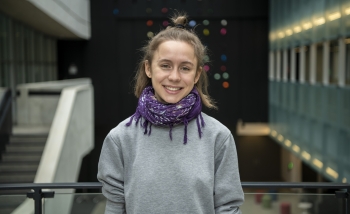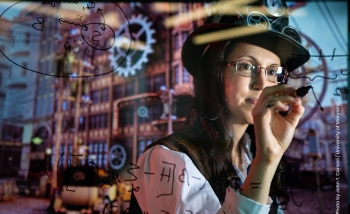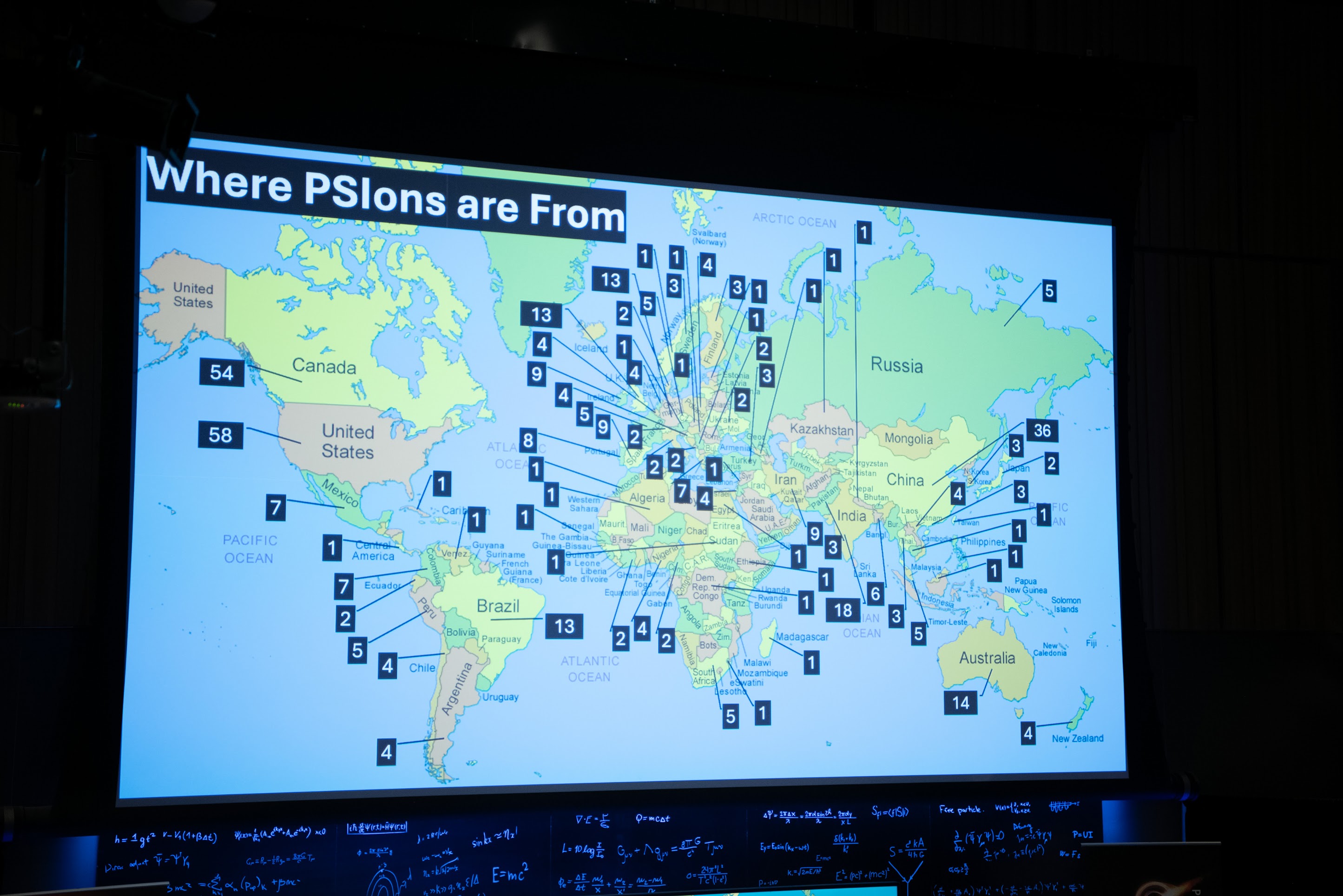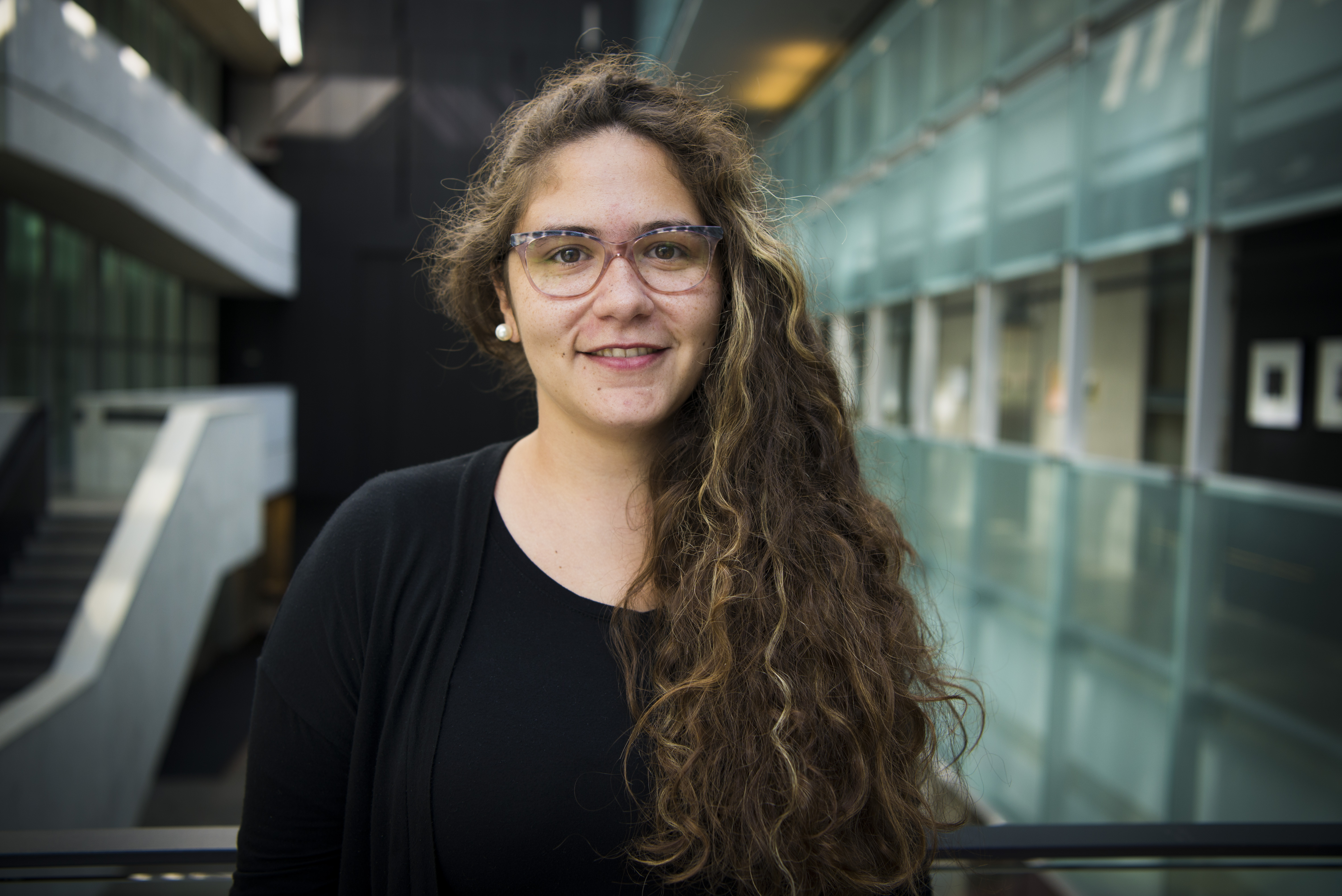They are a diverse lot: Some oversee quantum technology projects at industry-leading companies. Some work at global financial institutions. Others are developing new theoretical physics ideas at renowned academic institutions. A few have gone from being theoreticians to experimentalists or started their own science communications enterprises. All of them unique.
But they have one thing in common: They are graduates of the Perimeter Scholars International (PSI), an intense and much-sought-after theoretical physics master’s program that recently celebrated its 15th anniversary.
The anniversary brought alumni together for three days of celebration, where old friendships were reignited, and a wealth of career tips were swapped and traded by former students who are now leaders in their field. Graduates from the program, which is run in partnership with the University of Waterloo, are doing amazing things. 15 years of successful graduates make that clear.
Robert Myers, Perimeter Director and BMO Financial Group Isaac Newton Chair in Theoretical Physics, said the PSI program has brought Perimeter to life.
“We didn’t realize how incredible it would really be,” Myers said. The young people “energized the building and they have become a cornerstone of our culture of collaboration, our drive to be interdisciplinary, to really be willing to try new ideas.”
Many people think of theoretical physics as an esoteric realm with a trajectory that can only lead to academia, but PSI alumni have proven that a foundation in theoretical physics is important to economic vibrancy and technological breakthroughs in many industries. A significant proportion of PSI alumni have found careers outside of academia.
Take for example Natacha Altamirano, a PSI alumna from the class of 2012 who arrived in Canada from Argentina and now is director of data science at Birch Hill Equity Partners, a major private equity firm based in Toronto with $5 billion in capital under management.
Altamirano’s research was focused on black holes, quantum gravity, and cosmological models like the big bang while she was doing her master’s and PhD programs through Perimeter and the University of Waterloo.
Moving into private equity may seem like a big leap, but Altamirano discovered that many of the same skills apply. “You have to be creative, and you can’t be afraid of the math,” she said.
She thinks creatively about products and optimization solutions that will help her clients. She does research and data analysis and works closely with a team of great people. And just like someone who is a PhD supervisor, she is committed to the success of her junior team members. “I find that most gratifying,” she says.
“Nothing ever gets boring or mundane,” Altamirano adds about her current role. “I am still very much intellectually challenged.”
She isn’t alone.
Alexander Vincent-Emard, who was part of the 2012 PSI cohort, has also transitioned into industry, and is now an expert in data science and artificial intelligence (AI) at Avanade. People with a background in physics are problem solvers, Vincent-Emard says. “We do have something special as physicists that others don’t.”
His journey in theoretical physics taught him perseverance and the need to have a plan A, plan B and plan C, he said. “I know my way forward, and if I fail, I know what my alternative is,” he said. His other piece of advice for today’s students is, “don’t be afraid to try new things. That’s really helped me in my career.”
Shane Farnsworth, originally from Australia, is a PSI graduate from the 2010/2011 cohort who works on spectral geometry as a guest researcher at the Max-Planck Institute for Gravitational Physics in Germany. But he has managed to mix his theoretical physics with work in AI consulting, and he also has his own YouTube and podcast channel, Escaped Sapiens, supported by the Andrea von Braun Foundation, that engages thinkers in conversations about a sustainable future for humanity.
Farnsworth said at Perimeter he found connections to a wider world of experts.
“In the area of physics that I was working in, there were not a lot of experts here at the time. But I was able to get access to experts from other institutions and I also was given the resources to travel and speak to people. So, it was the perfect place for me to do what I was doing, and, in the end, I had access to everything I wanted because of the connectivity the Institute provided,” he said.
Miriam Diamond, from the PSI class of 2012/13 transitioned from theoretical physics to become an experimental researcher and is now working on the SuperCDMS dark matter detector at the SNOLAB facility near Sudbury, Ontario. The detector will have its first science run next year.
“I have great memories of the enthusiasm that everyone around me in the PSI program had,” she said. “I think back to the atmosphere and how eager I was to get up in the morning and go to it and how it helped me to keep going forward,” she said.
The paths PSI alumni take are many and varied.
Perhaps no one embodies this better than Sonali Mohapatra, who came to Perimeter from India, and was the valedictorian of the PSI class that graduated in 2015. She then did her PhD at the University of Sussex. Now, she is the quantum innovation sector lead at the National Quantum Computing Centre in the UK.
But she is also a poet and author. She co-founded and edited an international feminist/queer magazine called Carved Voices and published a book, Leaking Ink, a collection of poems, while also acting as a freelance columnist for Via Satellite magazine.
Mohapatra also played leading roles in non-profits and charities such as the Migrant Travel Support Network in India that helped develop, conceptualise and set up an India-wide network to provide travel, food and shelter care for migrant workers who were stuck during the Covid-19 lockdown.
Mohapatra says PSI played an instrumental role in her life. “It was a year that changed a lot of things for me, and the biggest change was discovering how easy it was to get support for your ideas without having to fight for it,” she says, adding that this built up her confidence, something she needed at the time.
Mohapatra says that women in physics are often a tiny minority in their program, so they can sometimes feel drowned out. Not so at Perimeter, she added. “It felt like we were being given a lot of opportunities and when you said something, you were being valued for your idea rather than your gender.”
Aggie Branczyk, a former PSI teacher, recently left IBM to launch a new initiative, Academics in the Wild. The organization aims to help support physicists and mathematicians in their journey from academia to industry.
She advises today’s masters and PhD students to devote time to making connections that will help them after they graduate. “It takes a lot longer than you expect. You need to allow six months to 12 months to make that transition, and so you shouldn't wait until just before you submit your thesis,” she said.
If there is a lesson to take from these accomplished PSI alumni – themselves just a sample of the 400 incredible career journeys – it’s that being a physicist isn’t a limiting identity. It’s a launch pad that can take you wherever you want to go.
Students interested in the PSI program can find more details about the application process here.
PSI Alumni can keep up with the latest news, career workshops, and opportunities here.
About PI
Perimeter Institute is the world’s largest research hub devoted to theoretical physics. The independent Institute was founded in 1999 to foster breakthroughs in the fundamental understanding of our universe, from the smallest particles to the entire cosmos. Research at Perimeter is motivated by the understanding that fundamental science advances human knowledge and catalyzes innovation, and that today’s theoretical physics is tomorrow’s technology. Located in the Region of Waterloo, the not-for-profit Institute is a unique public-private endeavour, including the Governments of Ontario and Canada, that enables cutting-edge research, trains the next generation of scientific pioneers, and shares the power of physics through award-winning educational outreach and public engagement.
You might be interested in





